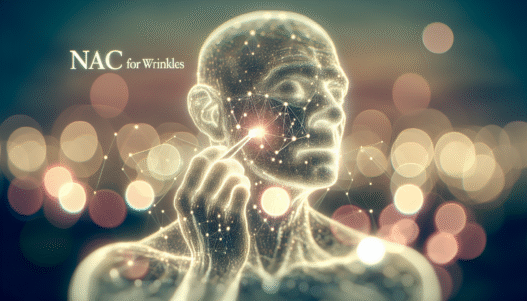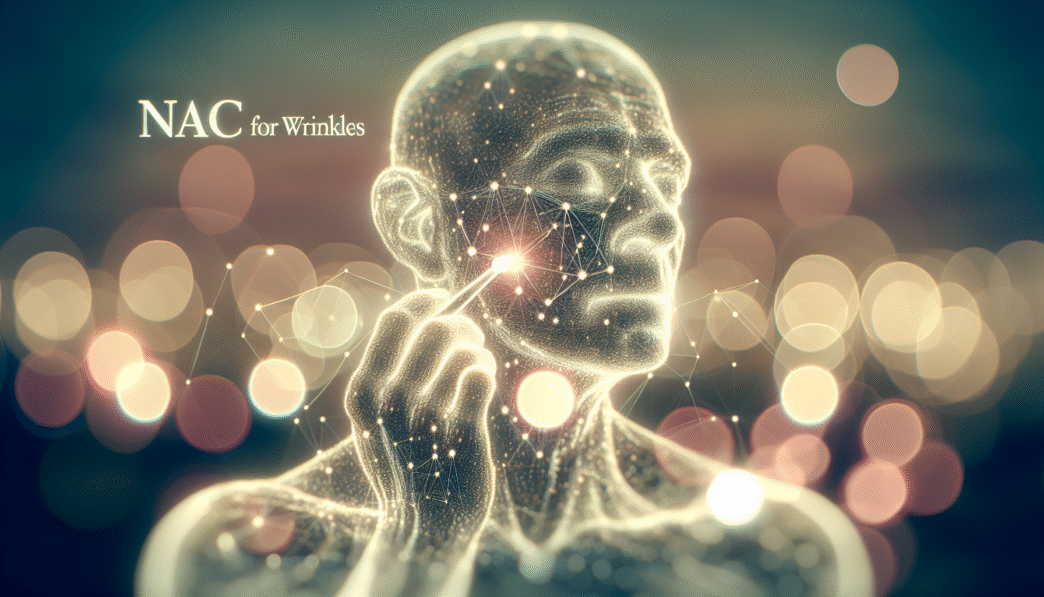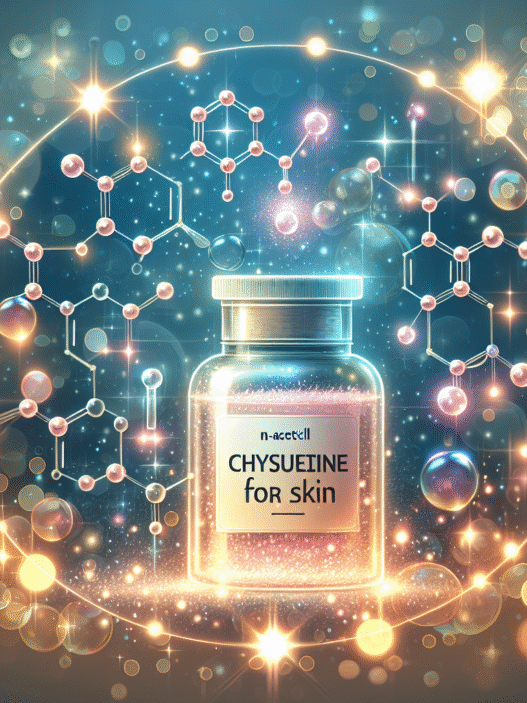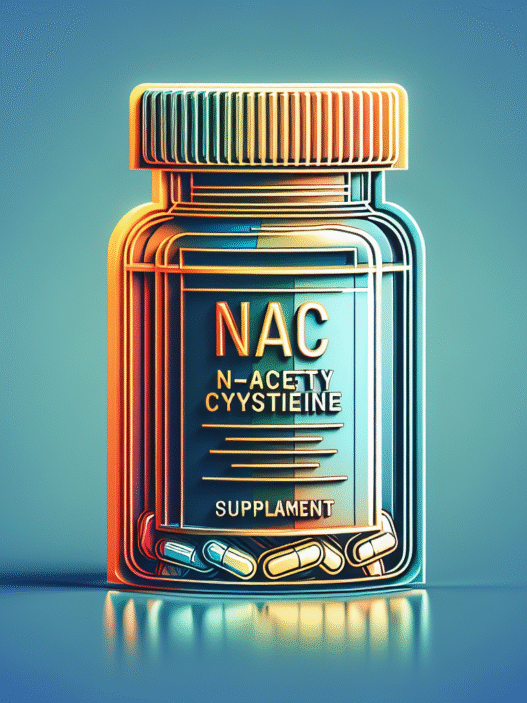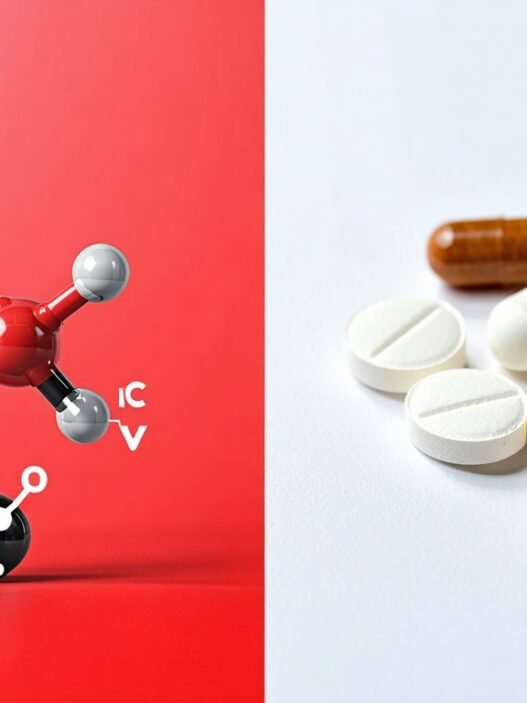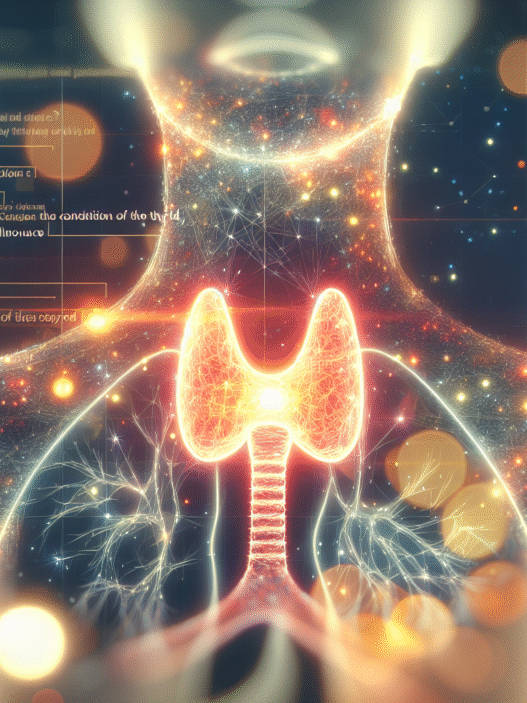NAC for Anti-aging
Understanding NAC Benefits
N-Acetyl Cysteine (NAC) is a naturally occurring amino acid that functions as a potent antioxidant. Its ability to neutralize free radicals contributes significantly to reducing the appearance of wrinkles and fine lines. These free radicals are known to accelerate the aging process of the skin, making NAC a valuable ally in the quest for youthful skin. Research suggests that this compound may also promote the production of glutathione, an important antioxidant for cellular repair and detoxification within the skin (111Skin). By enhancing the skin’s natural defense mechanisms, it plays a crucial role in maintaining a youthful appearance.
Key Benefits of NAC:
| Benefit | Description |
|---|---|
| Antioxidant Properties | Neutralizes free radicals that contribute to aging signs. |
| Supports Glutathione | Enhances the skin’s detox and repair mechanisms. |
| Improves Skin Health | Aids in maintaining skin moisture and reducing visible wrinkles and fine lines. |
NAC is increasingly recognized for its multifaceted benefits in skin health, making it a popular ingredient in various anti-aging supplements and skincare products.
Role in Skin Health
The role of NAC in skin health extends beyond its antioxidant properties. When applied topically, studies indicate that NAC can help improve various dermatologic conditions. It has shown promising results in treating acne vulgaris, reducing comedone counts effectively with topical application of 5% NAC gel (PubMed). Furthermore, in children with Type I lamellar ichthyosis, a urea emulsion containing 5-10% NAC has been noted to enhance scaling and overall skin condition.
The protective effects of NAC are also beneficial against the harmful impacts of ultraviolet radiation (UVR), which plays a significant role in skin aging. UVR leads to DNA damage and inflammatory responses, further amplifying the need for antioxidants like NAC to bolster skin defenses.
In addition to reducing visible aging, NAC supports the synthesis of collagen, essential for maintaining skin elasticity and smoothness. The insights into NAC’s diverse benefits position it as a compelling choice for those concerned with aging signs and wanting to enhance their skin health. For more information on how NAC can contribute to skin wellness, explore our articles on n-acetyl cysteine for skin and nac supplement for skin health.
NAC for Respiratory Health
N-Acetyl Cysteine (NAC) plays a significant role in respiratory health, particularly for individuals dealing with various lung conditions. It acts as both an antioxidant and an expectorant, contributing to improved lung function and relief from respiratory symptoms.
Improving Lung Function
NAC has shown promise in enhancing lung function, especially in individuals suffering from chronic respiratory diseases such as Chronic Obstructive Pulmonary Disease (COPD) and cystic fibrosis. By acting as an antioxidant, NAC helps reduce inflammation in the lungs and break up mucus, making it easier to breathe. Clinical studies indicate that NAC may help decrease exacerbations and improve overall lung performance.
Here’s a summary of the effects of NAC on lung function in various conditions:
| Condition | Improvement Indicated |
|---|---|
| COPD | Reduction in exacerbations, improved lung performance |
| Cystic Fibrosis | Potential improvement in lung function and mucus clearance |
| Idiopathic Pulmonary Fibrosis | Mixed results; some studies show benefits |
Relieving Respiratory Symptoms
In addition to improving lung function, NAC helps alleviate symptoms associated with respiratory conditions. It can effectively relieve cough and mucus build-up, providing stabilization for individuals with asthma, bronchitis, and other pulmonary issues. The expectorant properties of NAC enable it to reduce mucus viscosity, allowing for easier expulsion and potentially minimizing symptoms.
Overall, NAC serves as a supportive treatment option for respiratory health, particularly beneficial for those looking for adjunct therapies to improve their lung conditions. For additional information on how NAC supports overall well-being, consider exploring more about n-acetyl cysteine benefits or its various roles in skin health through n-acetyl cysteine for skin.
NAC for Dermatologic Conditions
Treating Skin Disorders
N-Acetyl Cysteine (NAC) has demonstrated effectiveness in treating a range of dermatologic conditions. Clinical trials conducted from 1966 to 2017 indicate that NAC is beneficial for conditions such as excoriation disorder, onychophagia (nail-biting), trichotillomania (hair-pulling), and acne vulgaris, among others.
In a significant study, NAC treatment led to notable improvements in nail growth for 42 children suffering from onychophagia, with a statistically significant difference observed in nail length compared to a placebo group after just one month of treatment. Similarly, individuals with excoriation disorder showed marked reductions in skin-picking severity when treated with NAC in a randomized, double-blind trial.
| Condition | NAC Effectiveness |
|---|---|
| Excoriation Disorder | Reduced skin-picking severity |
| Onychophagia | Increased nail length |
| Acne Vulgaris | Improved skin health |
| Trichotillomania | Decreased hair-pulling incidents |
| Type I Lamellar Ichthyosis | Positive response noted in trials |
Clinical Efficacy Studies
Numerous studies support NAC’s clinical efficacy in treating dermatologic issues. In patients with excoriation disorder, NAC was found to be significantly effective in reducing skin-picking behavior, which can lead to secondary skin injuries. Additionally, findings in wound healing demonstrate that NAC enhances angiogenesis and increases wound-breaking strength in both diabetic and non-diabetic models (PubMed Central).
Overall, the studies present a consistent pattern of NAC being a versatile treatment option for various skin disorders, particularly as an adjunct therapy that enhances skin health and supports recovery. For more detailed insights into how NAC can benefit skin health, consider reading about n-acetyl cysteine for skin or explore the n-acetyl cysteine benefits further.
NAC for Overall Health
Boosting Immune Function
N-acetyl cysteine (NAC) has been recognized for its potential to enhance immune function. Research suggests that NAC, along with glutathione, may improve immune health by restoring functionality in diseases associated with deficiencies in these compounds (Healthline). This ability to support the immune system makes NAC a valuable supplement for those concerned about their overall health, especially during cold and flu seasons.
Furthermore, NAC has been shown to have antioxidant and anti-inflammatory properties, which play a critical role in reducing oxidative stress. By mitigating these damaging effects, NAC helps to bolster the body’s defenses and promote better health outcomes.
| Benefit | Description |
|---|---|
| Immune Enhancement | Restores immune health in deficiency-related diseases |
| Antioxidant Support | Reduces oxidative stress and inflammation |
| Overall Wellness | May contribute to improved health outcomes |
Potential for Disease Prevention
NAC has demonstrated promising potential in the realm of disease prevention. It is an FDA-approved medication and a WHO-recognized essential drug, primarily used for treating paracetamol overdose and as a mucolytic compound. Its antioxidant and anti-inflammatory capacities aid in managing diseases related to oxidative stress and inflammation (NCBI).
Moreover, studies have suggested that NAC can improve insulin sensitivity in women with polycystic ovary syndrome (PCOS), indicating its potential role in managing metabolic disorders. It has also shown clinical benefits in enhancing the response to interferon-alpha in patients with chronic hepatitis C, underlining its relevance in liver health (NCBI).
Here’s a summary of the potential of NAC in disease prevention:
| Condition | Potential Benefit |
|---|---|
| Chronic Hepatitis C | Enhances response to interferon-alpha |
| Insulin Resistance | Improves insulin sensitivity in PCOS |
| Oxidative Stress-Related Diseases | Acts as an antioxidant and anti-inflammatory agent |
Overall, NAC holds significant promise in promoting health and preventing diseases. Its broad application in various conditions highlights its versatility as a supplement for those seeking longevity and improved health. To explore more about NAC’s role in skin health and wrinkles, consider our articles on n-acetyl cysteine for skin and nac for anti-aging.
NAC Considerations
N-Acetyl Cysteine (NAC) is a powerful compound with a variety of health benefits, particularly in relation to anti-aging and skin health. Understanding the proper dosage, administration methods, safety profile, and potential side effects is important for those considering using NAC in their daily regimen.
Dosage and Administration
NAC can be administered in several ways, including orally, intravenously, or by inhalation. The choice of method may depend on individual health needs and recommendations from healthcare professionals.
- Oral Administration: NAC can be taken in pill or powder form. It is rapidly absorbed in the intestines but has a low bioavailability of less than 10%, meaning not all of the dosage fully enters the bloodstream.
- Intravenous Administration: This method delivers NAC directly into the bloodstream, achieving higher concentrations in the body. For example, administering NAC at a dosage of 150 mg/kg over 15 minutes can result in average plasma concentrations of around 554 mg/L (PMC).
- Inhalation: This is another method but is less commonly utilized outside of specific medical contexts.
| Administration Method | Bioavailability | Advantages |
|---|---|---|
| Oral | <10% | Convenient, widely available |
| Intravenous | High | Rapid delivery, higher plasma concentrations |
| Inhalation | Variable | Useful for specific respiratory conditions |
Safety Profile and Side Effects
NAC is generally considered safe and well-tolerated, even at high doses. Minimal adverse effects have been reported, primarily related to gastrointestinal symptoms. Some individuals may experience nausea or vomiting as a result of NAC supplementation.
- Common Side Effects:
- Gastrointestinal upset (nausea, vomiting)
- Allergic reactions (rare) during intravenous usage, sometimes leading to anaphylactoid reactions
Despite its safety, it is advisable to consult with a healthcare professional before starting any new supplement regimen, especially for those with underlying health conditions or those currently taking medications.
For additional details on the various health benefits of NAC, including its potential applications for skin health, visit our sections on n-acetyl cysteine benefits and nac for skin health.
NAC and Collagen Production
Collagen Synthesis Mechanism
N-Acetyl Cysteine (NAC) plays a significant role in collagen production, a vital protein for maintaining the skin’s structure and elasticity. As individuals age, collagen levels naturally decline, leading to the appearance of wrinkles and fine lines. NAC has the potential to promote firmer, smoother skin and reduce visible signs of aging by stimulating collagen production (111Skin).
Research indicates that NAC may enhance the synthesis of glutathione, a critical antioxidant that supports cellular repair and detoxification within the skin. This protective effect can further help maintain youthful skin by combating oxidative stress and environmental damage. Additionally, studies suggest that NAC Y²™ specifically may stimulate collagen production, which may lead to improved skin firmness and reduced fine lines.
Effects on Wrinkles and Fine Lines
The incorporation of NAC into skincare regimens or supplements may lead to noticeable improvements in the appearance of wrinkles and fine lines. Through its role in promoting collagen synthesis, NAC enhances skin resilience and texture, contributing to a more youthful look.
| Effects of NAC on Skin | Description |
|---|---|
| Reduces Fine Lines | Increased collagen production may minimize the appearance of fine lines. |
| Improves Firmness | Supports skin structure for a firmer complexion. |
| Enhances Smoothness | Aids in achieving a smoother skin texture. |
Clinical studies have demonstrated that topical applications of NAC, such as a 5% NAC gel, may be effective in treating specific skin disorders, indicating its promising potential for overall skin health and anti-aging effects. However, more research is needed to fully comprehend the long-term benefits of NAC on skin and determine optimal dosage and application methods. It is advisable to consult with a dermatologist for personalized skincare advice.
For those interested in exploring the various benefits of NAC, resources on n-acetyl cysteine benefits and nac for anti-aging can provide further insights into this powerful compound and its impact on skin health.










